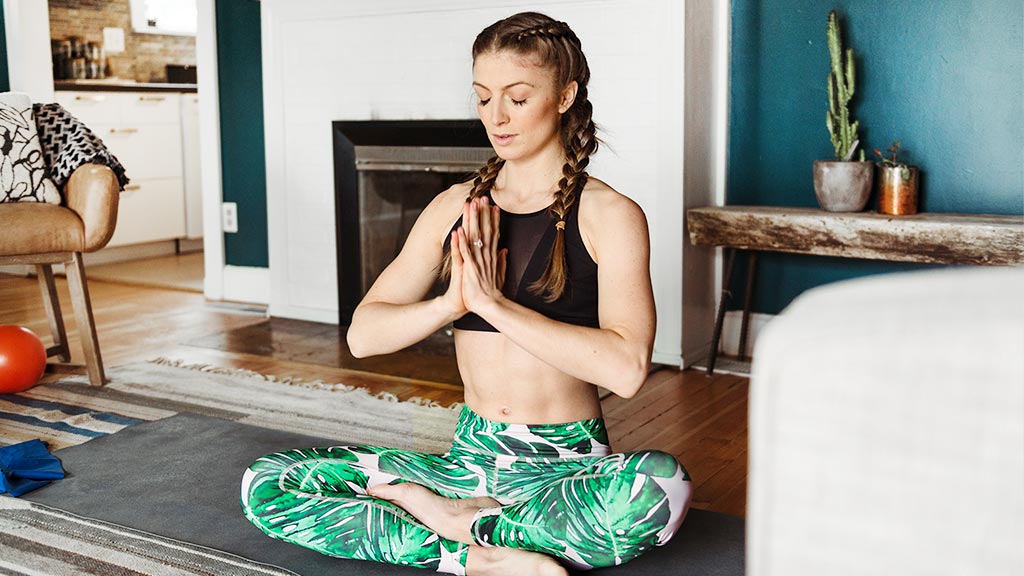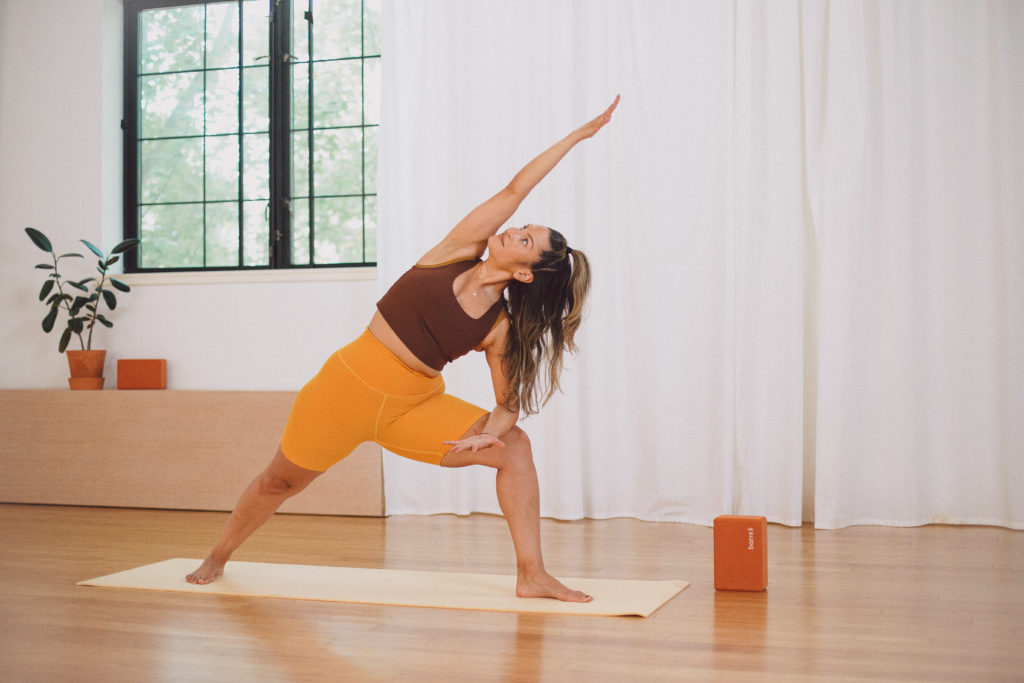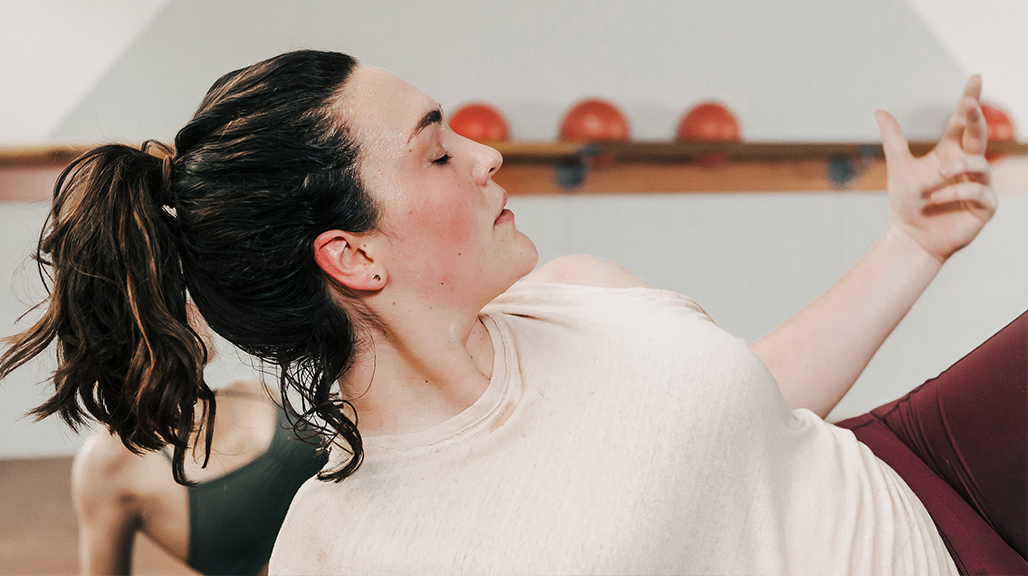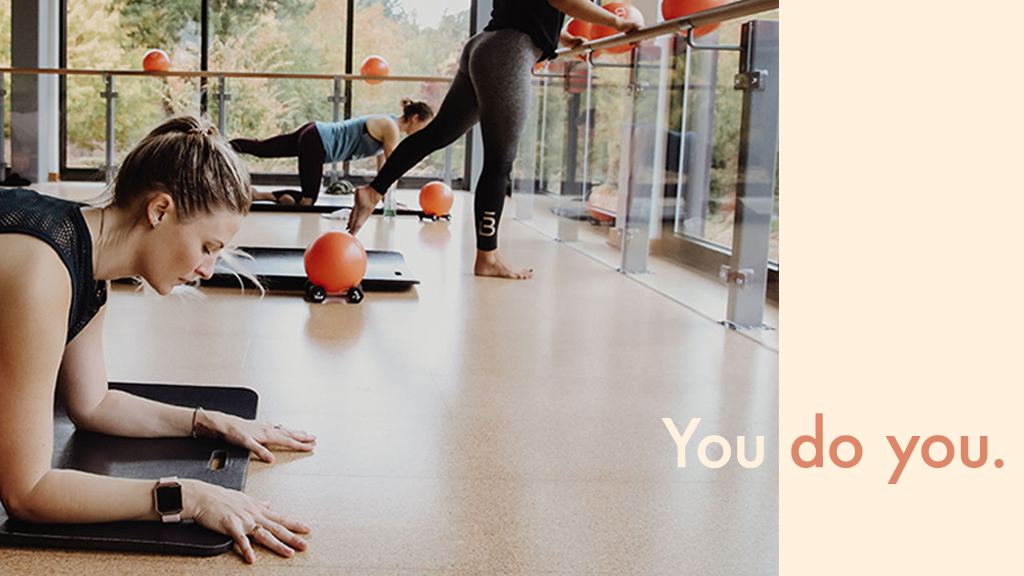Connect
THE BIGGEST BARRIER TO MEDITATING—AND HOW TO GET PAST IT (PLUS A BONUS BREATHING TECHNIQUE YOU’LL LOVE!)
Most of us know that meditation is a powerful tool when it comes to centering the mind.
But over the past few years, studies have revealed that a regular practice may produce benefits that go far beyond a nice Zen feeling. Thanks to recent research, we now know that meditation may help everything from sleep problems and chronic pain to loneliness and anxiety.
So what’s stopping the masses from adopting a meditation practice? Getting started. Fueled by fears that meditating is hard (even impossible) or that it’s only for the extra experienced, many people write it off before they even try it.
To help hesitators get over that initial hump, we turned to Emily Fletcher, founder of Ziva Meditation and creator of zivaMIND, the world’s first online meditation training. Having worked with everyone from Google to Harvard Business School to barre3 founder Sadie Lincoln—plus everyone who listened to our meditation webinar!—Fletcher knows how to help make meditation not just accessible but also effective.
“Meditation is the single most powerful stress-reducing tool we have,” Fletcher explains. “When you’re stressed, your brain doesn’t have the proper cognitive tools available, which affects both your mental and physical performance. But when you meditate, you realize you can do so much more in less time. You stress less and accomplish more.”
Ready to find your Om? Check out these meditation pointers from Fletcher, and try her favorite breathing technique below.
Unplug. Easier said than done, we know. However, before you can successfully meditate, you need to be able to focus your energy inward, not out. “I think for a lot of us, technology has become an addiction,” says Emily. “Every time you get a ‘like’ on Facebook, it gives you a boost of dopamine and serotonin. The key is to find a positive alternative, like meditation or barre3, that provides the internal boost you need without the negative side effects.”
Treat it like any other skill. Even though meditating is relatively simple, it does not usually come naturally. “Trying to sit down and give your brain a command to shut up is like trying to give your heart a command to stop beating,” says Fletcher. “You should treat meditation like any other learned skill. Invest a little bit of time and energy to the practice, and find a good teacher. Your return on the investment will be exponential.”
Look for long-term benefits. There are lots of resources available for quick, guided meditations, but those are basically like taking a really good pain relief medicine, says Fletcher. “You’re stressed, you do an app for 10 minutes, and it makes you feel better right now. Unfortunately, those positive effects will soon wear off,” she says. If you want to continue receiving benefits from your meditation practice, you need to address the root cause of your stress. ZivaMIND, which involves eight days of meditation training for 25 minutes/day, is a great place to start. “Our techniques are designed to be easily integrated into your daily life,” Fletcher says. “The goal is to meditate to get good at life—not good at meditation.”
Check out Fletcher’s favorite breathing technique here. Give it a try and let us know what you think!
Most of us know that meditation is a powerful tool when it comes to centering the mind.
But over the past few years, studies have revealed that a regular practice may produce benefits that go far beyond a nice Zen feeling. Thanks to recent research, we now know that meditation may help everything from sleep problems and chronic pain to loneliness and anxiety.
So what’s stopping the masses from adopting a meditation practice? Getting started. Fueled by fears that meditating is hard (even impossible) or that it’s only for the extra experienced, many people write it off before they even try it.
To help hesitators get over that initial hump, we turned to Emily Fletcher, founder of Ziva Meditation and creator of zivaMIND, the world’s first online meditation training. Having worked with everyone from Google to Harvard Business School to barre3 founder Sadie Lincoln—plus everyone who listened to our meditation webinar!—Fletcher knows how to help make meditation not just accessible but also effective.
“Meditation is the single most powerful stress-reducing tool we have,” Fletcher explains. “When you’re stressed, your brain doesn’t have the proper cognitive tools available, which affects both your mental and physical performance. But when you meditate, you realize you can do so much more in less time. You stress less and accomplish more.”
Ready to find your Om? Check out these meditation pointers from Fletcher, and try her favorite breathing technique below.
Unplug. Easier said than done, we know. However, before you can successfully meditate, you need to be able to focus your energy inward, not out. “I think for a lot of us, technology has become an addiction,” says Emily. “Every time you get a ‘like’ on Facebook, it gives you a boost of dopamine and serotonin. The key is to find a positive alternative, like meditation or barre3, that provides the internal boost you need without the negative side effects.”
Treat it like any other skill. Even though meditating is relatively simple, it does not usually come naturally. “Trying to sit down and give your brain a command to shut up is like trying to give your heart a command to stop beating,” says Fletcher. “You should treat meditation like any other learned skill. Invest a little bit of time and energy to the practice, and find a good teacher. Your return on the investment will be exponential.”
Look for long-term benefits. There are lots of resources available for quick, guided meditations, but those are basically like taking a really good pain relief medicine, says Fletcher. “You’re stressed, you do an app for 10 minutes, and it makes you feel better right now. Unfortunately, those positive effects will soon wear off,” she says. If you want to continue receiving benefits from your meditation practice, you need to address the root cause of your stress. ZivaMIND, which involves eight days of meditation training for 25 minutes/day, is a great place to start. “Our techniques are designed to be easily integrated into your daily life,” Fletcher says. “The goal is to meditate to get good at life—not good at meditation.”
Check out Fletcher’s favorite breathing technique here. Give it a try and let us know what you think!










One person has left a comment. Join the conversation!
View Comments